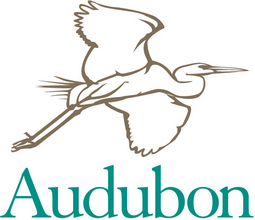A seasonal biological field technician is needed to manage and monitor Audubon North Carolina’s Coastal sanctuaries as required to adequately manage and protect the sanctuaries for nesting birds, as well as assist with other projects, including a federal grant which is currently being considered for funding. This position is essential to providing logistical support to the coastal biologist and to carrying out management activities that are Audubon North Carolina's responsibilities as the state of North Carolina's designated manager of Lea Island and the Cape Fear River Islands. Much of the work will focus on Lea-Hutaff Island, a four-mile long barrier island that hosts nesting American Oystercatchers, Piping Plovers, Wilson's Plovers, and Least Terns, as well as nesting loggerhead sea turtles, but will also include other sites as needed.
S/he assist the coastal biologist in monitoring and managing Audubon North Carolina’s sanctuary system for the purpose of providing habitat for nesting shorebirds, including American Oystercatchers. The technician will be responsible for monitoring oystercatcher, plover, and tern productivity on assigned island(s), collecting accurate data, maintaining and enforcing signage, educating the public, interacting with volunteers, and assisting with other related activities as needed. The technician will work long hours independently in adverse outdoor conditions and access most work sites by outboard motorboat.
The ideal candidate will enjoy working outdoors, have his/her own transportation, and be available to early to mid-March through August. This is a seasonal (i.e., temporary) job with no benefits and no housing provided.
- Monitor American Oystercatcher, Least Tern, and Piping and Wilson’s Plover productivity on barrier islands and other sites: locate, mark, and track nests to success or failure.
- Post nesting areas and maintain postings throughout the summer: use post-hole diggers and carry up to 40 lbs.
- Monitor sea turtle nesting activity: locate crawls and distinguish nests from false crawls.
- Carry out protocols to monitor disturbance at nesting sites: remain alert and observant for long periods of time.
- Maintain accurate, detailed data: keep a regular field journal, maintain data sheets and spreadsheets, produce a written report at the end of the season.
- Conduct shorebird surveys: identify shorebirds and gulls and terns, use binoculars and a spotting scope.
- Assist with other activities as needed, including volunteer events, educational activities, and colonial waterbird surveys.
- Previous experience monitoring nesting shorebirds preferred; experience monitoring nesting sea turtles preferred.
- Ability to identify shorebirds and waterbirds (terns, sandpipers, plovers, etc.).
- Ability to operate outboard motorboats up to 23’ in inshore waters and ability to tow, launch, and recover outboard motorboats up to 23'.
- Good written and oral communication skills, as well as strong organizational skills a must; ability to interact positively with the public and volunteers.
- Proficient in MS Office suite.
- Must possess valid driver's license and have the ability to pass NC boater's license test.
- Must be physically able to walk up to 25 miles/week on a barrier island and be able to work outdoors in adverse conditions (cold, extreme heat, humidity, biting insects, etc.).
- Comfortable working alone, unsupervised, on the water and on an uninhabited barrier island.
- A flexible approach to work, with the willingness to start early (sometimes before sunrise), work long hours, and on weekends and holidays as needed.
